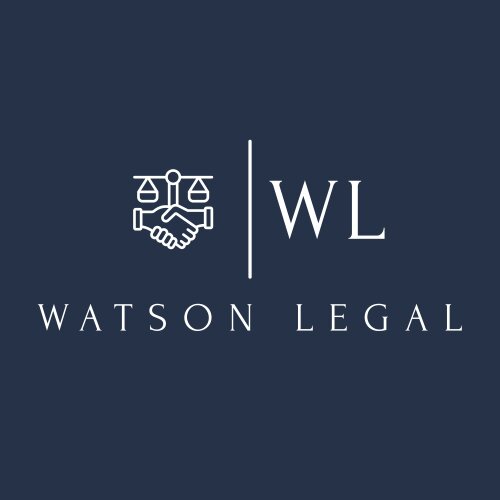Best Wrongful Death Lawyers in Athlone
Share your needs with us, get contacted by law firms.
Free. Takes 2 min.
List of the best lawyers in Athlone, Ireland
1. About Wrongful Death Law in Athlone, Ireland
Wrongful death claims in Ireland are primarily governed by the Fatal Accidents Act 1959. This law allows dependants to seek damages for financial loss and bereavement where a death results from another person’s negligence or dangerous conduct. In Athlone, survivors can pursue these claims through the Irish court system, typically via a solicitor or barrister acting on their behalf.
Most death-related civil actions are brought in the Circuit Court or the High Court, depending on the case value and complexity. A local solicitor can guide you through evidence collection, damages calculations, and settlement negotiations before ever reaching trial. Understanding who may claim and what losses are recoverable is essential for residents of Athlone and surrounding areas such as Moate, Ballymahon, and Roscommon.
Bereavement damages under the Fatal Accidents Act 1959 provide a statutory head of damages to dependants for grief and loss arising from a death.
For practical navigation, residents of Athlone should seek advice early in the process, especially where multiple dependants may be affected or where the death involved a workplace or road traffic incident. An experienced solicitor can help map out eligibility, potential losses, and the best path to resolution in the local courts.
2. Why You May Need a Lawyer
Here are concrete, real-world scenarios in Athlone where legal counsel is typically essential:
- A parent dies in a car crash on a major road near Athlone after another vehicle failed to stop in time, leaving dependants eligible to seek loss of dependency damages.
- A worker dies in a construction site accident in or near Athlone, raising workplace safety questions and a claim for dependants’ financial losses and bereavement damages.
- A family member dies due to suspected medical negligence at a hospital within or near the Midlands region, prompting a legal review of liability and damages.
- A death caused by a defective product sold in a shop within Westmeath, requiring a solicitor to establish product liability and pursue appropriate damages.
- A spouse dies after a housing or public service issue in Athlone, creating questions about recoverable losses including care needs and household services previously provided by the deceased.
- Whether subsequent medical costs and funeral expenses can be recovered as part of the claim, depending on evidence and the act's provisions.
3. Local Laws Overview
Two to three key laws govern Wrongful Death claims in Ireland, including in Athlone. Understanding their scope helps you prepare a stronger case.
- Fatal Accidents Act 1959 - This is the primary statute enabling dependants to claim damages after a death caused by another party's negligence or wrongful conduct. It covers loss of dependency, funeral expenses, and bereavement damages where eligible.
- Civil Liability and Courts Act 2004 - This act modernises civil litigation and governs court procedures for personal injury and related claims, including how actions are plead, managed, and resolved in the Irish courts.
- Limitation Acts (General time limits) - These Acts set time limits for bringing civil claims, including wrongful death actions. Missing a deadline can bar a claim, so early legal advice is important.
Recent trends emphasize timely filing, careful evidence collection, and a push toward mediated settlements when appropriate. For residents of Athlone, these dynamics mean engaging a local solicitor early to assess eligibility, gather key documents like death certificates, police or inquest records, and financial losses.
Irish courts emphasize timely initiation of civil proceedings and robust evidence to support dependency losses and bereavement damages.
For authoritative texts, you can consult official resources such as the Irish Statute Book for the Fatal Accidents Act 1959 and the Courts Service for civil proceedings processes. These sources provide the precise statutory language and procedural framework applicable in Athlone and across Ireland.
4. Frequently Asked Questions
What is a wrongful death claim in Ireland?
A wrongful death claim seeks compensation for dependants and the estate when a death results from another person’s negligence or unlawful act. It includes financial losses and bereavement damages where eligible.
How do I start a fatal accident claim in Athlone?
Begin by consulting a local solicitor who can assess eligibility, gather key documents, and issue a Letter of Claim to the defendant. This initiates formal negotiations and, if needed, court proceedings.
Do I need to be a dependant to claim under the Fatal Accidents Act?
Typically, dependants such as spouses, civil partners, children, or other financially dependent relatives may claim. Personal representatives may act on behalf of the estate in some circumstances.
How long do I have to file a wrongful death claim in Ireland?
Time limits exist under the Limitation Acts. It is crucial to obtain advice quickly, as missing deadlines can bar a claim. Your solicitor will explain the current cut-off applicable to your case.
What evidence should I gather for a fatal accident case?
Collect the death certificate, any inquest or coroner reports, police or Garda reports, medical records, funeral invoices, and proof of financial losses and dependencies.
How much compensation can I expect in a fatal accident claim?
Compensation varies by losses proven, including dependency and bereavement damages, future earnings, and care costs. An experienced solicitor can give a practical estimate based on your situation.
What is bereavement damages and can I claim it?
Bereavement damages are a statutory component awarded to eligible dependants. The amount and eligibility depend on the circumstances and the death.
Do I need to hire a solicitor to pursue a claim?
While it is possible to represent yourself, a solicitor in Athlone is highly recommended. They navigate complex statutes, evidence gathering, and court procedures efficiently.
Can I claim if the death resulted from medical negligence?
Yes, if medical negligence caused or contributed to the death, a claim may be pursued under the Fatal Accidents Act framework and related medical liability principles.
Should I inform the Garda or Coroner before pursuing a claim?
In many cases, relevant investigations or inquests are part of the process. Your solicitor will guide you on coordinating with authorities and documenting findings.
Do I pay solicitor fees if the case settles?
Many Irish personal injury practices use conditional fee arrangements or clear fee structures. Discuss costs and potential success fees with your solicitor up front.
Is there a difference between a dependent and a personal representative claim?
Dependants typically pursue losses for personal and financial impact, while a personal representative may handle claims on behalf of the estate. Your solicitor will clarify who has standing in your case.
5. Additional Resources
Access official sources for reliable guidance and statutory texts related to Fatal Accidents Act claims and wrongful death law:
- Courts Service of Ireland - Information on civil actions, court processes, and dispute resolution in Ireland.
- Irish Statute Book - Official texts of Acts including the Fatal Accidents Act 1959 and related statutes.
- Citizens Information - Public guidance on rights, dependants, and fatal accidents claims.
6. Next Steps
- Identify who may have standing in your Athlone area case (dependants, estate representatives) within the first 1-2 weeks.
- Collect key documents now: death certificate, any inquest results, police reports, and records of financial losses within 2-4 weeks.
- Consult a local Athlone solicitor who specialises in wrongful death or personal injury claims; schedule a paid or initial complimentary consultation within 2-6 weeks.
- Have the solicitor assess eligibility and issue a Letter of Claim to the defendant within 4-8 weeks of engagement.
- Support evidence gathering during the next 2-4 months, including financial records, funeral expenses, and any care costs that can be claimed.
- Enter settlement negotiations or prepare for court proceedings if required; most cases settle within 6-18 months, though some extend longer depending on complexity.
Lawzana helps you find the best lawyers and law firms in Athlone through a curated and pre-screened list of qualified legal professionals. Our platform offers rankings and detailed profiles of attorneys and law firms, allowing you to compare based on practice areas, including Wrongful Death, experience, and client feedback.
Each profile includes a description of the firm's areas of practice, client reviews, team members and partners, year of establishment, spoken languages, office locations, contact information, social media presence, and any published articles or resources. Most firms on our platform speak English and are experienced in both local and international legal matters.
Get a quote from top-rated law firms in Athlone, Ireland — quickly, securely, and without unnecessary hassle.
Disclaimer:
The information provided on this page is for general informational purposes only and does not constitute legal advice. While we strive to ensure the accuracy and relevance of the content, legal information may change over time, and interpretations of the law can vary. You should always consult with a qualified legal professional for advice specific to your situation.
We disclaim all liability for actions taken or not taken based on the content of this page. If you believe any information is incorrect or outdated, please contact us, and we will review and update it where appropriate.










